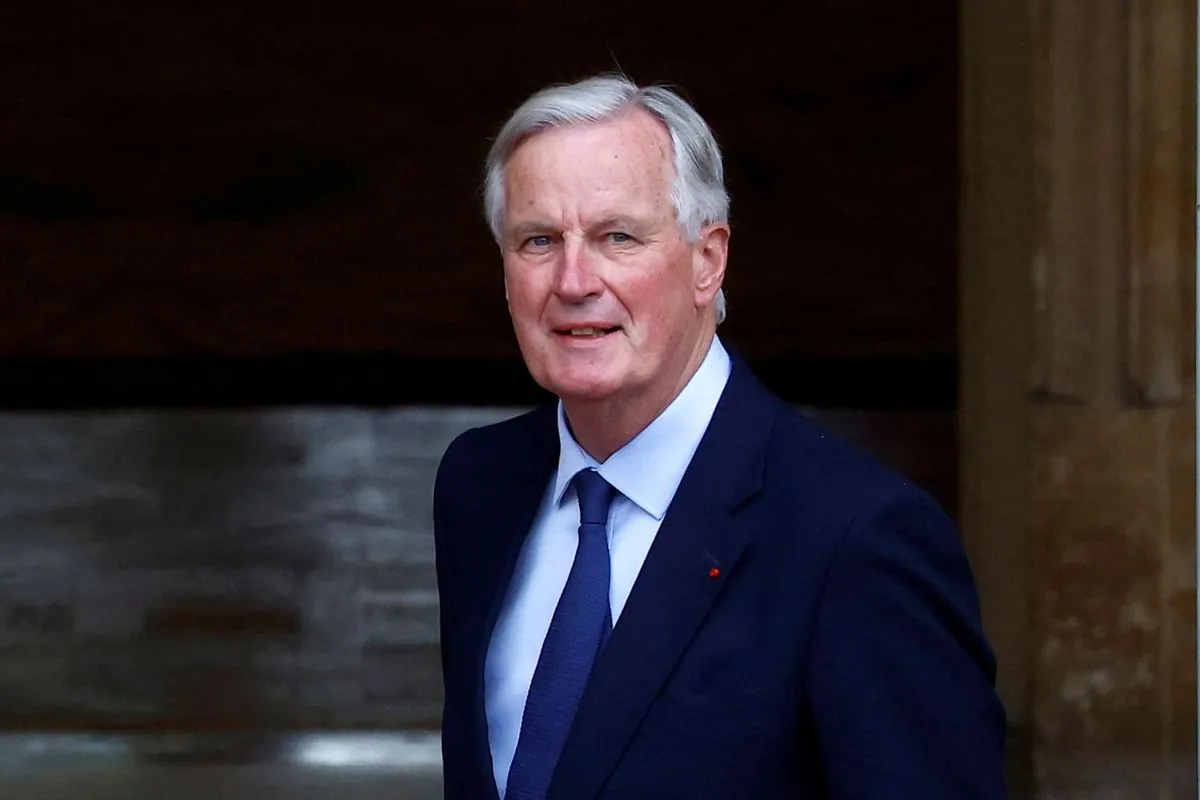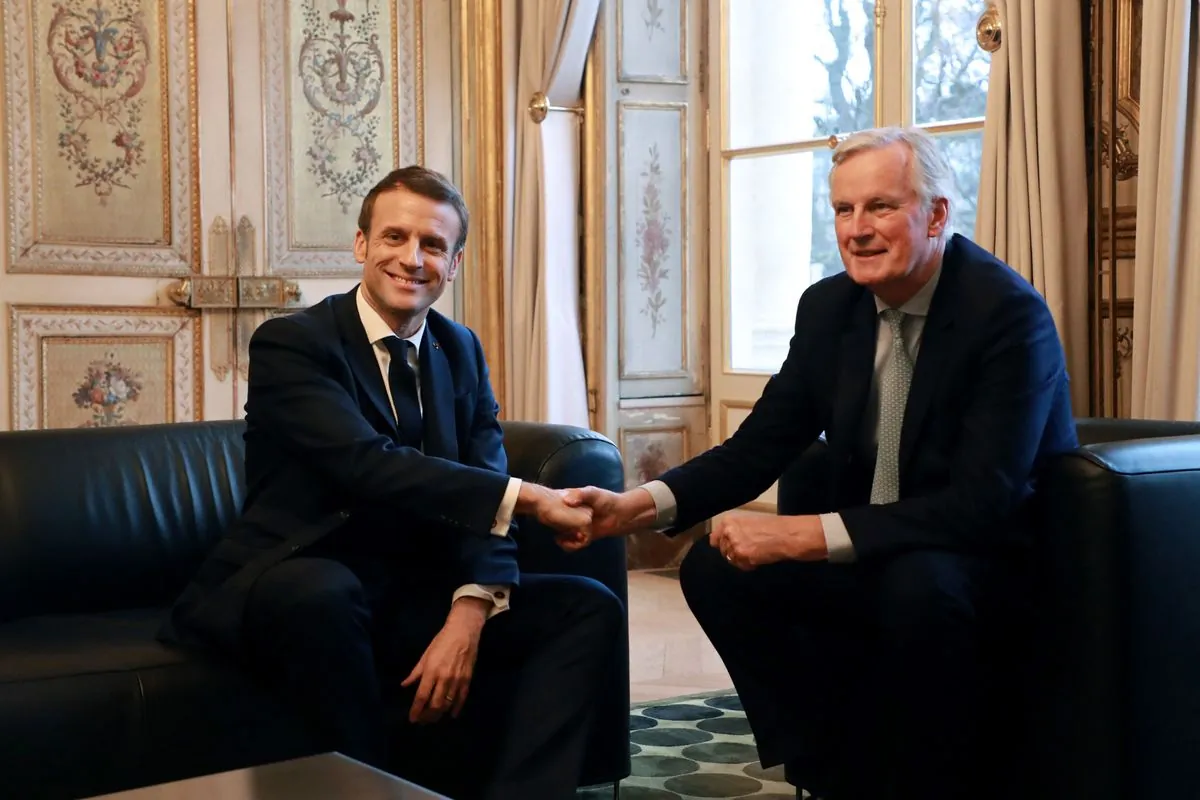Michel Barnier Vows Unity as New French PM Amid Political Turmoil
Michel Barnier, former EU Brexit negotiator, becomes France's new Prime Minister. He pledges to work towards respect and unity in a politically divided nation, following months of upheaval.

In a significant political development, Michel Barnier has been appointed as the new Prime Minister of France by President Emmanuel Macron. This decision comes after a period of political instability and division in the country, which has been grappling with the aftermath of an inconclusive snap election.
Barnier, known for his role as the European Union's chief Brexit negotiator from 2016 to 2021, addressed the nation in his inaugural speech at the Matignon, the official residence of the French Prime Minister. Standing alongside his predecessor, Gabriel Attal, Barnier emphasized his commitment to fostering unity and respect among the French populace.
"The French... today need and expressed their need for respect, unity and appeasement."
This statement reflects the challenges facing France, which has experienced significant political turbulence in recent months. The country's multi-party system, with its 577-seat National Assembly, has contributed to a complex political landscape that Barnier must now navigate.
President Macron's decision to appoint Barnier is seen as a strategic move to bring stability and end the political paralysis that has gripped the nation. As the head of government in France's semi-presidential system, Barnier will play a crucial role in implementing Macron's policies and addressing the concerns of the French people.

France, a founding member of the European Union and the world's seventh-largest economy by nominal GDP, faces numerous challenges that require a unified approach. With a population of approximately 67 million, the country has a long history of political activism and social movements, which have often shaped its political discourse.
Barnier's extensive experience in European politics, including his tenure as European Commissioner for Internal Market and Services from 2010 to 2014, positions him well to address both domestic and international issues. His appointment comes at a critical time for France, as it seeks to strengthen its position within the EU and on the global stage.
As Barnier begins his tenure, he will need to balance the diverse interests of France's political parties and work towards the "appeasement" he mentioned in his speech. The success of his premiership will likely depend on his ability to bridge political divides and implement effective policies that address the needs of the French people.
The challenges ahead for Barnier and the French government are substantial, but the new Prime Minister's pledge to work with "all those in good faith" suggests a commitment to inclusive governance. As France moves forward under this new leadership, the world will be watching to see how this latest chapter in the country's rich political history unfolds.


































